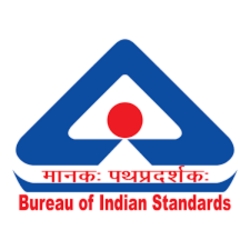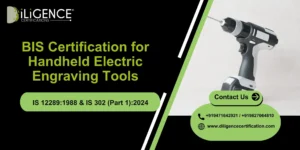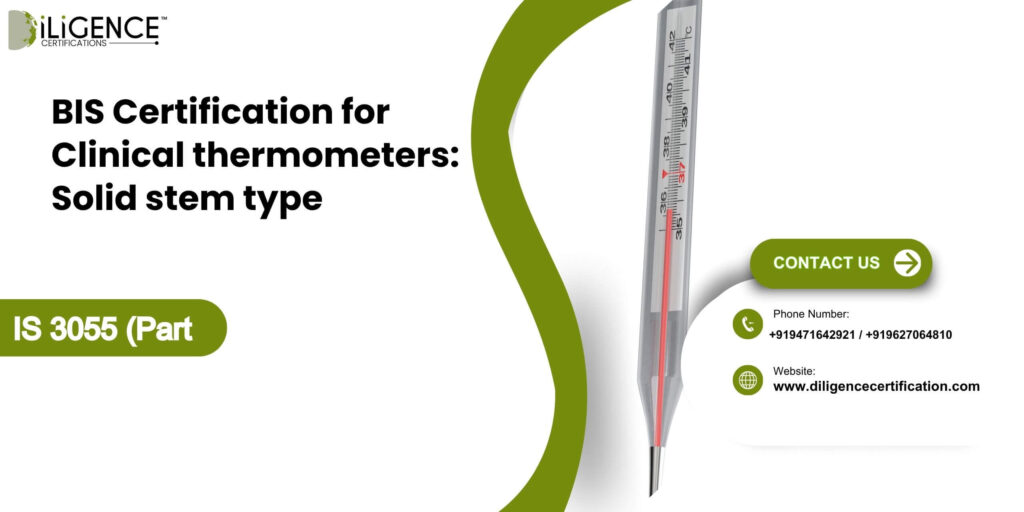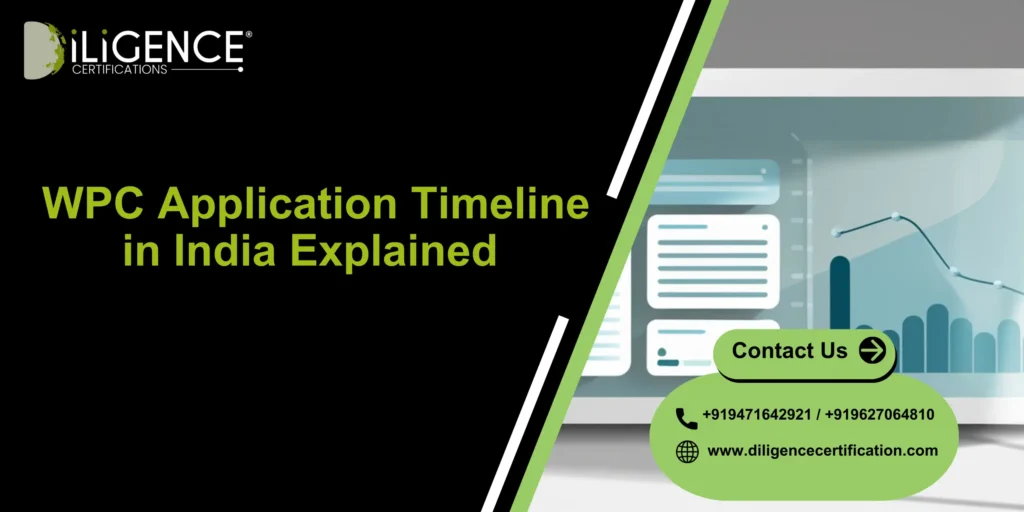- BIS certification under IS 3055 (Part I) is required for a solid stem clinical thermometer.
- It assures accuracy of the product, safety and the materials of which they are made.
- The certification process consists of an application, test and inspection of the factory.
- Thermometers with ISI mark are considered more trustworthy and preferred.
- BIS Certification for Clinical Thermometers: Part 1 Solid Stem Type Under IS 3055 (Part 1) improves your credibility and market entry expectations.
Introduction

A significant medical device manufacturer based in Pune had experienced rejection from buyers at hospitals because none of its thermometers had the Bureau of Indian Standards (BIS) Certification. This point clearly highlights the importance of compliance in India’s healthcare market. The BIS Certification for Clinical Thermometers: Solid Stem Type Under IS 3055 (Part 1) has consistent parameters for accuracy and safety testing for all solid stem thermometers. The Testing and Inspection parameters evaluate that a product meets quality, construction, and performance requirements. For the manufacturer, not only is this certification an obligation of law, it builds trust with hospitals and healthcare organizations.
What is IS 3055 (Part 1)?
IS 3055 (Part 1) is an Indian Standard published by the Bureau of Indian Standards (BIS) that specifies the requirements, design, and testing methods for solid stem clinical thermometers. It applies to mercury-in-glass thermometers used for measuring human body temperature, typically oral or rectal types.
The standard outlines details such as:

- Materials and construction quality of glass tubing and bulb
- Scale marking, graduation, and readability
- Accuracy and permissible error limits
- Tests for ageing, immersion time influence, and hydrolytic resistance of glass. ISI MARK
Why is BIS Certification Mandatory for Clinical thermometers: Solid stem type
- BIS Certification ensures solid stem clinical thermometers meet safety and accuracy standards under IS 3055 (Part 1).
- It is legally mandatory for manufacturing, importing, or selling thermometers in India.
- Certification verifies material quality, construction, and performance through BIS testing.
- It helps eliminate unsafe or poor-quality thermometers from the market.
- Hospitals and government buyers accept only BIS-certified thermometers for clinical use.
Importance & Benefits of BIS Certification
| Importance | Benefits |
| Ensures thermometers comply with IS 3055 (Part 1) safety and performance standards. | Delivers consistent accuracy and reliability in clinical use. |
| Mandatory under BIS regulations for manufacturing, import, and sale in India. | Provides legal assurance and prevents regulatory penalties. |
| Verifies product design, material quality, and testing process. | Improves durability and reduces chances of measurement errors. |
| Required by hospitals, healthcare institutions, and government tenders. | Expands market reach and eligibility for bulk procurement. |
| Promotes standardization in medical equipment manufacturing. | Enhances brand reputation and consumer confidence in product quality. |
Step by Step process of BIS Certification

Step1:Documentation
- Gather detailed product specifications, technical drawings, and process descriptions.
- Implement quality control plans and calibration records.
- Add the manufacturer’s license, factory layout, and material certificates.
- Make certain that all documents follow the BIS format showing standard references.
Step2:Product Testing
- Send samples of the products to an authorized BIS lab for testing.
- Tests will consider parameters including accuracy, performance, and quality per IS 3055 (Part 1).
- All testing equipment must have a calibration certificate.
- Test reports must be read to confirm compliance prior to submission.
Step3:Application Submission
- Observe an action of registration submitted through the accompanying form located on the BIS portal.
- All documentation will need to be attached with the registration, including test reports and product characteristics.
- Government fees and any applicable processing fees will be paid.
- An online acknowledgement number should be issued by BIS and your registration number will be generated.
- Once all documentation is provided the time for processing further increases.
Step4:Scrutiny and Inspection
- All documents submitted to a BIS registration will be scrutinized and evaluated by an official BIS member.
- A systematic fashion inspection will approve the manufacturing setup.
- And the inspector will also look at the lab structure and work productivity and control documentation.
- And any findings deliberated not within conformity will be acted upon in a timely manner.
Step5:Grant of License
- A licensing will be issued by BIS if your registration has complied in all components.
- You will receive both an ISI mark and have been granted a license for your product.
- Diligently keep all documentation for future audit inspections and or registration renewal.
- Finally, your products will be legal to mention for sale and distribution in the country of India.
Documents Required for BIS Certification
| Category | Documents Required for BIS Certification |
| Company Details | Business registration certificate, GST certificate, and factory license. |
| Product Information | Technical specifications, design drawings, bill of materials, and product photographs. |
| Quality Control | Internal test reports, quality manual, and calibration certificates for lab equipment. |
| Manufacturing Setup | Factory layout, production process flowchart, and list of machinery used. |
| Testing & Compliance | BIS-recognized lab test reports and material safety certificates. |
| Authorisation (if applicable) | Authorization letter or agreement for Indian representatives (for foreign manufacturers). |
Timelines, Costs, Validity & Renewal
- Timelines: Generally processed within 4-6 weeks, depending on how quickly we can obtain documents, and conduct testing.
- Costs: Composed of the fees to Government (for application), lab testing fees, and inspection fees, varies based on the product type.
- Validity: A BIS licence is valid for two years from the time of issue.
- Renewal: Should be applied prior to the term of the licence expiring, along with updated test reports and documents and the renewal term can be achieved up to five years.
Why Choose Diligence Certifications
- Well-Informed Guidance: We have people with a lot of experience who will make certain you follow IS 3055 (Part 1) and the BIS regulatory requirements to the utmost.
- Comprehensive Support: Everything is conducted seamlessly, including preparing documents, arranging inspections, and gaining formal approvals, and you will not need to swing a hammer.
- Timely Processing: Diligence has a good track-record for bringing innovation to certification timelines, as long as there is documentation and the pre-audit is done well.
- Strong Network with the Industry: We connected with BIS labs and their regulatory officers to expedite and communicate effectively where needed.
- Post-Certification Support: We are here for you (even) post-certification in regards to renewals, audits, or just maintaining your license in general.
Conclusion
BIS Certification of Clinical Thermometers: Part 1 Solid Stem Type with IS 3055 (Part 1) assures accuracy, safety, and conformity to Indian Standards. This fosters trust among hospitals, health care institutions, and consumers. It provides a boost to the credibility of manufacturers and better access to government and institutional markets. The BIS certification process can be faster and more precise by collaborating with experts like Diligence Certifications. Quality assurance accompanied by BIS certification is a regulatory requirement and visible confirmation of reliability in today’s regulated health care market.
Frequently Ask Questions
What does BIS Certification for Clinical Thermometers: Part 1 Solid Stem Type really mean?
When it comes to clinical usage of solid stem mercury-in-glass thermometers in India, there is a mandatory certification under IS 3055 (Part 1) that tells whether or not the thermometer is safe and usable.
Is BIS Certification required for clinical thermometers?
Yes, it is a must in order to manufacture, import or sell clinical thermometers in India under the BIS Act and Quality Control Orders.
What standard applies to solid stem clinical thermometers?
The standard is IS 3055 (Part 1):1994 - Clinical Thermometers (Solid Stem Type)
Who issues BIS Certification?
The Bureau of Indian Standards (BIS), the National Standards Body of the country, issues certification.
What documentation is required for BIS Certification?
Essentially, documentation includes business registration, specifications of product, test reports, factory layout, quality manual, calibration certificates and others
How long does the BIS Certification process take?
Generally, a certification should take 4 to 6 weeks depending on applicant reading of documents and land scheduling the testing.
What is the term of the license?
The license is valid for two years, renewable for another five years if compliance is shown.
What are the main tests conducted under IS 3055 (Part 1)?
Tests include material quality, accuracy, ageing, immersion time influence, and hydrolytic resistance of glass.
Can foreign manufacturers apply for BIS Certification?
Yes, but they must appoint an Authorised Indian Representative (AIR) to handle documentation and communication with BIS.
Why choose Diligence Certifications for BIS approval?
Diligence Certifications offers expert support, faster processing, and complete assistance from documentation to final licence approval.








 BIS Certification
BIS Certification
 CDSCO
CDSCO
 CPCB
CPCB
 LMPC
LMPC
 WPC Approval
WPC Approval
 Global Approvals
Global Approvals
 TEC
TEC
 ARAI
ARAI
 BEE
BEE
 ISO Certification
ISO Certification
 DGCA Certification
DGCA Certification
 NOC For Steel
NOC For Steel



















 Business Registration
Business Registration















 Legal Services
Legal Services
 Trademark Registration
Trademark Registration
 Copyright Registration
Copyright Registration
 Patent Registration
Patent Registration















































